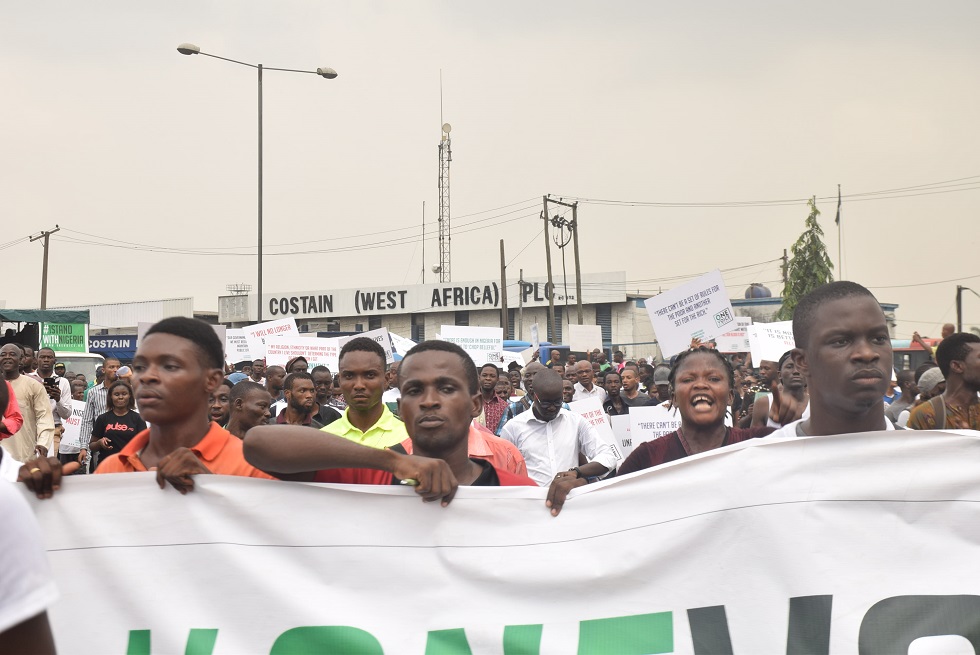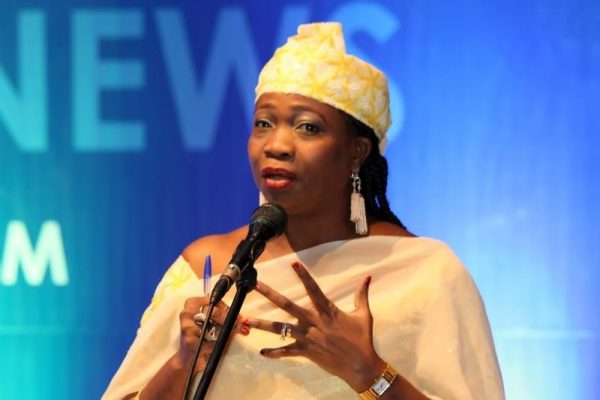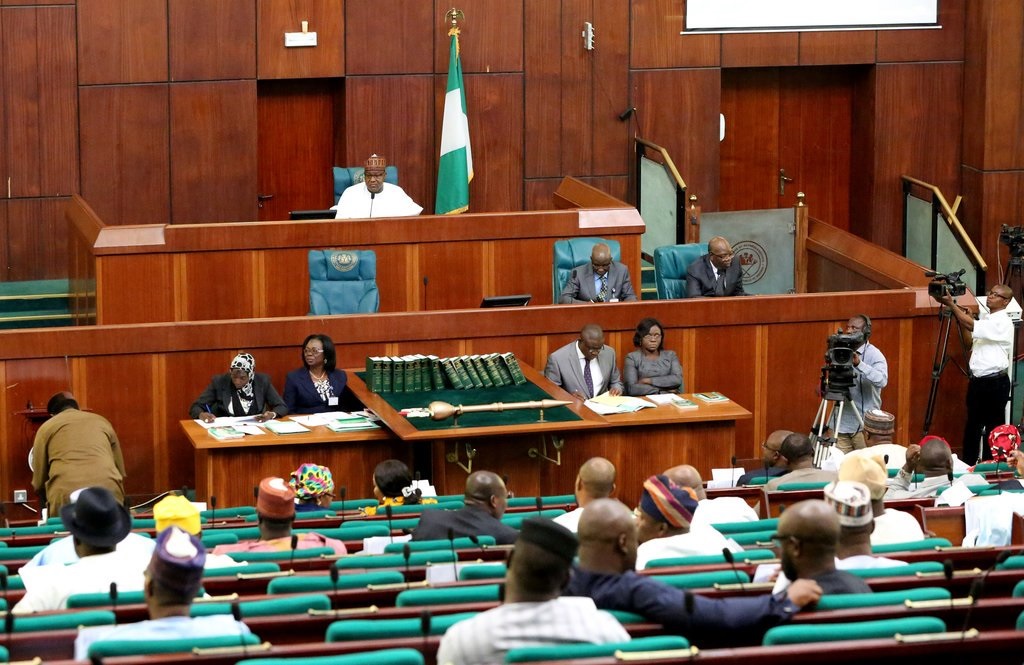BY ONYEMA OMENUWA
All countries of the world, where altruism is the bedrock of government, thrive on the ideal that seeks to guarantee the greatest good for the greatest number of citizens. This ideal in turn takes cognizance of the constancy of change, thus underlining the universal precept that society itself is dynamic and invariably abhors stagnation. The predominant concept in virtually every discourse today among Nigerians, featuring whether formally or otherwise, is ‘restructuring’, which got its audacious impetus from the unrelenting clamour for secession by the Nnamdi Kanu-led Independent Peoples of Biafra (IPOB).
There will surely not be a consensus in present Nigeria, where issues are viewed, in the main, with the aid of ethnic cum religious binoculars, on whether or not Nnamdi Kanu and his IPOB’s claim that the Muhammadu Buhari administration has institutionalized acts of marginalization of the southeast zone in governmental affairs is true. But one thing is for sure: Other organisations and sections of the country have joined in demonstrating that they are utterly disenchanted with the status quo political structure of the country. Though unlike IPOB, clamours from the southwest, the middle belt and the Niger Delta areas have not definitely been for secession, but they are clearly for a drastic or comprehensive adjustment in and of the vital structural organs that sustain the country in political terms.
However, in the midst of this din, and significantly so, voices from the northern part of the country overwhelmingly ring unmistakably, in opposition to whatever has been suggested to adjust the present structure of the country. Yet, it must be conceded to the opposition voices from the north that, at least going back memory lane to Independence in 1960, the region has remained constant on its position, not to favour or accommodate any view that proposes even a marginal tinkering of the present political arrangement. Once in a while though, a lone voice might mutter an opinion in disagreement but that, most often, may just be to humour the protagonists from the south, particularly the southwest, which takes the eternal credit for unrelenting crusade for restructuring. Otherwise, it flies in the face of serious thinking to associate former military dictator Ibrahim Babangida, with any sincere call for restructuring, when he failed to effect it during the eight years he exercised boundless powers as maximum ruler. In like manner, the wily Nasir el Rufai could only have been dancing to a tune that prevailed in the company he found himself, when he earlier made the same call in 2010. Today, the diminutive Kaduna State governor’s heart beats with his region’s, hence his scathing criticism of advocates of restructuring as ‘irresponsible’ and a demonstration of ‘political opportunism’. Clearly, el Rufai never really believed in what he preached seven years ago and it is understandable.
Advertisement
In fairness to northern leaders, it will take a true statesman therefrom, and they are clearly in serious short supply, to reprogramme his psyche and sincerely want a change from a political arrangement that guarantees mainly individuals from the region plenteous benefits, without corresponding input. Yes, in the north, despite searing poverty, an ironic state of affairs that borders on obscenity thrives more than in any other part of the country, featuring a whole lot of millionaires, who attained that enviable status only on account of having, one time or the other, held public office. The emergence of such northern elite is made possible by an incongruous kind of federal structure that has enthroned mediocrity as governmental policy. Under this kind of arrangement, for instance, every Nigerian is subjected to the same qualifying examination or test for educational admission or employment. But the non-northerners will have to score at least thrice more than their counterparts from the north, to be qualified. For good measure, this peculiar kind of federalism also metaphorically guarantees abundant harvest for a man who holds cultivation in utter disdain. In this regard, at the end of every month, all the 36 States that make up the federation are assured of monetary allocation, derived almost entirely from the states whose citizens are marginalized in federal educational admissions and employments.
An arrangement whose aggregate package promises and indeed safeguards rewards for indolence, to the detriment of productiveness, will understandably rile those whose efforts or environment sustain the latter. That is the Nigerian experience or experiment. The southwest has always known this absurdity for what it is, hence their unrelenting agitation for a change of governmental structure, from as long a time as one can remember. The other parts of the country have only lately woken up to these institutionalized deprivations of every definable kind, which have been their lot in a country that should ordinarily guarantee all and sundry equal or equitable stakes.
Having gathered widespread momentum, fueled essentially by the tactless and dictatorial handling of the Nnamdi Kanu and IPOB phenomenon by the Buhari administration, the agitation for restructuring doesn’t look like it will abate soon. Certainly not, until the administration takes the bull by the horn and patriotically seizes the opportunity to address the issues that feed pure marginalization, which is being passed off as federal system of government. For the administration, it sure won’t be a walk in the park because it will be tantamount to snatching a prey from a pride of lions. Yet, it presents the only option that will finally lay to rest all feelings of alienation among majority of the constituent units that make up Nigeria and in turn enable accelerated national progress, which has eluded the country for too long.
Advertisement
Among other things, the restructuring that is envisaged should not be any other than the one that constitutionally provides for and indeed establishes concrete safeguards for fiscal federalism. This will have the ripple effect of seriously enhancing anti-corruption measures, by wiping out the ‘national cake’ mentality of particularly the sections of the country whose leaders have vowed never to engage in strategic thinking to generate revenue. Embezzlement or misappropriation of revenue has endured because those who indulge in it effortlessly have such revenues ‘dashed’ to them. Meanwhile, the parts of the country where the environment or the citizens suffer exploitation in the course of revenue generation remain perpetually in want because the system mandates that the revenue so generated must be shared with the indolent zones. Indeed, the assertion holds forever true that the tendency for reckless spending of money is associated more with those who never deploy efforts to make money.
The northern leaders have voiced their opposition to restructuring. But the prevailing agitations can only be ignored by the government, if it can risk the consequences, which largely remain unforeseen. The northern leaders by their opposition have demonstrably given themselves out as clear beneficiaries of inequitable conditions of co-existence. Their position strengthens the reason why the agitations will rather than abate, actually intensify. If the north is composed of patriots who desire the continued existence of the country as an indivisible entity, it will only take some introspection for them to admit the unjust system that has entrenched the subjugation of other citizens’ interest, and by extension national interest, to satisfy just sectional interest. At the heart of patriotism is the willingness of true statesmen to encourage the government to engage aggrieved citizens on the cause or causes of their grievances, so as to genuinely address them to enable national growth, in every sphere of endeavour.
The Nnamdi Kanus, the Biafra activists, the ubiquitous Niger Delta militant groups, the Afeniferes, the Oodua Peoples Congress (OPC), the middle belt groups have all identified marginalization as the root cause of their disillusionment and anger with the Nigerian system of government. If so, it only will take political will on the part of government to genuinely address this cause. Once done, the agitators would rechannel their efforts to productive ventures that will aid rather than frustrate national development.
Omenuwa practises Law in Abuja
Advertisement
Add a comment






